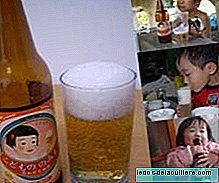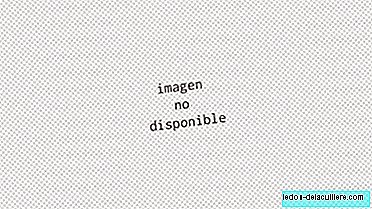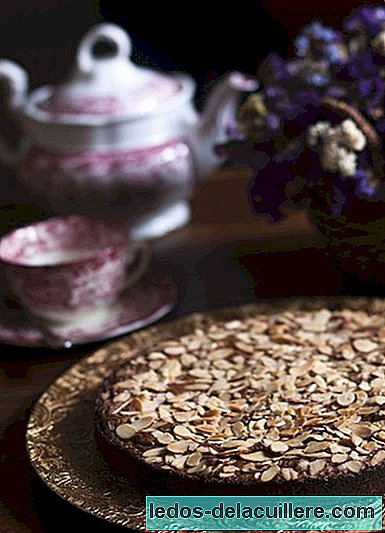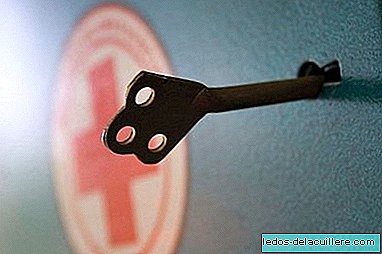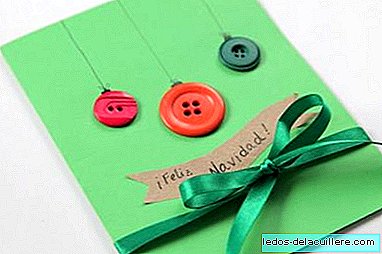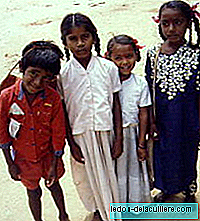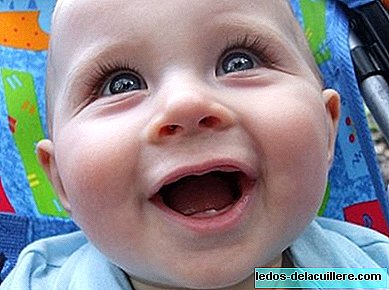
I have been struck by an article that I have read about teething pain that cast doubt on an extremely widespread belief: that when the baby's teeth come out, it hurts.
And, although he knew the controversy that exists about whether the fever may be due to the exit of the teeth (we saw it when talking about myths and realities in the appearance of the first teeth), he assumed that the dentition was A painful process
Tooth rash It consists of the set of movements that each tooth performs to occupy the space that corresponds to it in the mouth and perform its functions. Although the process of tooth formation occurs when the baby is not yet born, during pregnancy, the exit of these usually occurs within a few months of being born.
In the article published some time ago in "Famiped", the AEPap magazine, its authors tell us that
Popular knowledge has maintained that the eruption of teeth during breastfeeding and early years of life is painful. However, there is no scientific argument that supports this belief, moreover, common sense and experience prove otherwise.
Teething bothers, but it doesn't hurt
The authors continue to point out that, although it is true that there may be some discomfort, it will not be important enough to state that it is the cause of crying, fever or diarrhea coinciding with the time of teething. When this happens, another cause must be sought.
They claim that probably the fact that it was taken for granted that babies hurt when their teeth come out It is because the process of leaving the wisdom tooth, in adults, is painful.
The pediatricians authors of the article argue that both the gum mucosa opens so slowly that it occurs with hardly any discomfort, and they compare this development of teething with growth in general, which was once thought to hurt:
It is a scientific fact, proven and proven that growing does not hurt. At present, the pains that some schoolchildren have in the lower limbs at sunset and at night, we no longer call them growth pains, we already know that growing does not hurt.
Why squeeze where it hurts?
In these first months, when teething is imminent or is occurring, infants often put their hands to their mouths and suck. But this would not mean that teething will appear, it may be an effect of the exploratory desire.
Nor does offering teethers to children of this age to relieve pain and help the tooth out makes much sense according to the authors. We all avoid contact with painful areas, so if the gum is inflamed and it hurts, how do you explain that to soothe that pain, do pressure?
Since they don't talk, we don't know if it hurts
No infant or preschooler complains about teeth when they emerge, this is evident, as they cannot speak. However, at five and six years of age when the “milk” teeth fall and the permanent ones appear, for most children there is a party because the little mouse Perez comes, none says he has pain.
I cannot attest to this because my daughters are still small, but it makes sense that, being the teeth larger than the temporary ones and as the gum opens to give way to the new teeth, it hurts more than the first ones that do not have to "Push" to move anything.
Drooling and teething
Drooling could also be independent of the exit of the teeth. A process that occurs at the same stage, but not necessarily as a result of teeth output.
First you learn to suck, then to bite with the gum, then the dentition appears and finally you learn to chew. Drooling is an independent process of teething, without any relationship but with a parallel development.
While the newborn has a small amount of drool, it increases by four months, when the swallowing reflex is quite immature, so the baby "drools" a lot.
Fever and teething
The authors of the article also choose to consider that fever is not a consequence of teething. It is common that in the first months of life and coinciding with the time of teething the infant is affected by some febrile process, but another cause must be sought for this process.
My daughters in general have had quiet dentitions, and there have been no cases of fever. I know they liked to bite, and while I am not in a position to ensure that it was to calm the pain (the authors give an explanation about this is quite logical), it could be to relieve discomfort.
In any case, it is not easy to determine the border between discomfort and pain. If you think your baby hurts when his teeth come out, we remind you how to relieve the discomfort of teething.
Meanwhile, We will continue to wonder if babies hurt when their teeth come out and doing everything possible for their well-being, even when we don't know exactly where it comes from.



